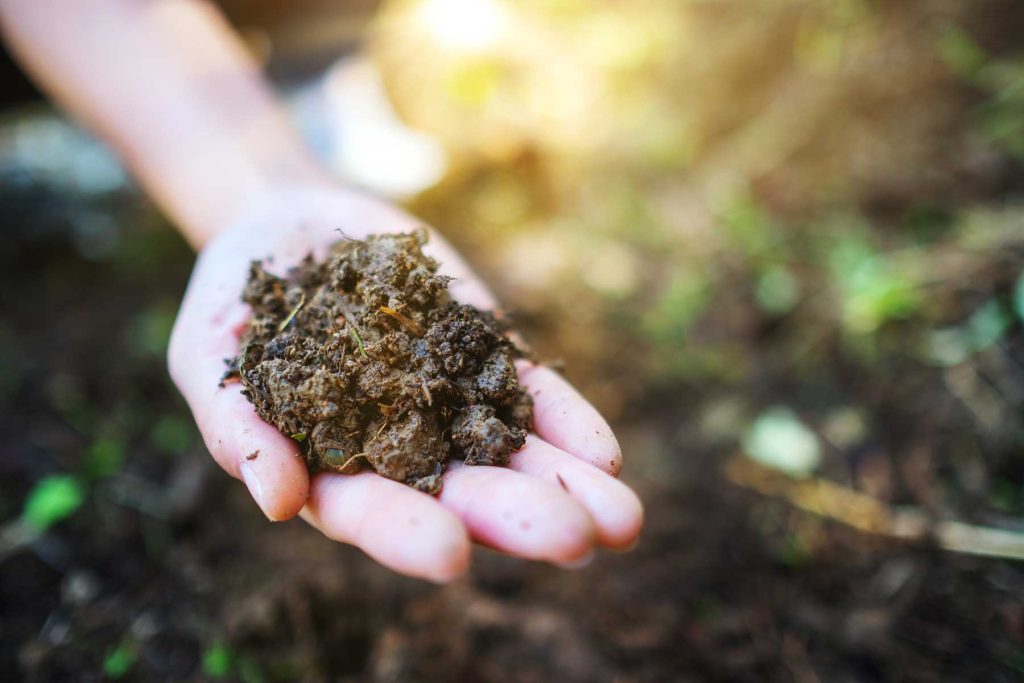
When you hear the term 'Mushroom Compost,' you might assume it is compost created from only cultured mushrooms. However, that’s not the case. The term 'Mushroom Compost' might suggest that it is a type of compost prepared using mushrooms, but in reality, it is a type of compost used for raising mushrooms. Mushroom compost is a natural fertilizer and using soil that has already been used to cultivate mushrooms, it slowly releases its nutrients into the soil.
Mushrooms are fungi and do not possess chlorophyll. As a result, they are not able to use photosynthesis for producing carbohydrates like plants. Thus, the surface on which mushrooms arise needs to have enough reserve of necessary nutrients.
The mixes for mushroom compost vary from one grower to another. The compost mix can be prepared using natural products like rye straw, peat moss, composted wheat, chicken manure, or horse bedding straw. One can use crushing grapes too along with canola and soybean meal, potash, urea, gypsum, and lime. Before mixing, these elements are weighed out.
It is urea, canola meal, and chicken manure that provide the majority of the nutrients. Straw provides structure and some food for bacteria. The bacteria get increased receiving their food supply and push the inside temperature of the mixed pile to more than 160 degrees. As a result, the weed seeds and pathogens presented in the mix get destroyed. After this, the mushroom compost is prepared.
Whenever mushroom compost is prepared, the process of 'pasteurization' is needed along with composting. For that, a high temperature should be needed in the mix which destroys the pests and weed seeds. Mushroom compost is quite amazing when it comes to adding necessary nutrients and micro-organisms to your garden. Mushroom compost also helps your soil enrich its water holding capacity, so you will have to water less in your garden if you use this compost. As this compost is fairly inexpensive, you can use it well. You can use this in your vegetable garden as well as around the perennials, trees, and shrubs you have.
When using the mushroom compost, there are some potential problems as well. You should be careful when using it because the mushroom compost is enriched in soluble salts and other nutrients. It might kill germinating seeds too. Mushroom compost can harm plants that are salt sensitive. For example - rhododendrons, blueberries, azaleas, and camellias
As there is a chance that using mushroom compost might kill the germinating seeds, to avoid this you need to mix mushroom compost with garden soil before using the compost on the young plants. You can even order mushroom compost in the fall and let it stay uncovered over the winter period.
Mushroom compost must be combined with soil before being used to grow plants. If you're supplementing your soil with mushroom compost, use a one-to-two ratio of compost to the soil. You can also buy soil that has already been mixed with mushroom compost, and this sort of compost can be utilized without further mixing. The salt levels in the compost will be diluted by mixing it, ensuring that nutrients are distributed slowly and evenly.
Because mushroom compost has such a high water retention property, planting anything in it undiluted will almost certainly result in fungal infections and rot. But diluting it properly will result in well-draining soil with many benefits. You may use mushroom compost to top-dress soil as well as mix it with soil before planting. To do so, spread a few inches of clean mushroom compost on top of the soil, making sure to leave a gap around plant stems and tree trunks.
Mushroom compost can also be used as a soil amendment in houseplants to help retain moisture and provide slow-release nutrients. Only use a small amount in your houseplant soil, and make sure your pots have drainage holes on the bottom. Mushroom compost is ideal for tropical houseplants that require regular moisture; however, it should not be used in pots with succulents, cacti, or any other houseplants that like dry soil.
Normally mushroom growers create the mushroom compost as they already have every material needed for it. But if you want to prepare your own mushroom compost, continue reading.